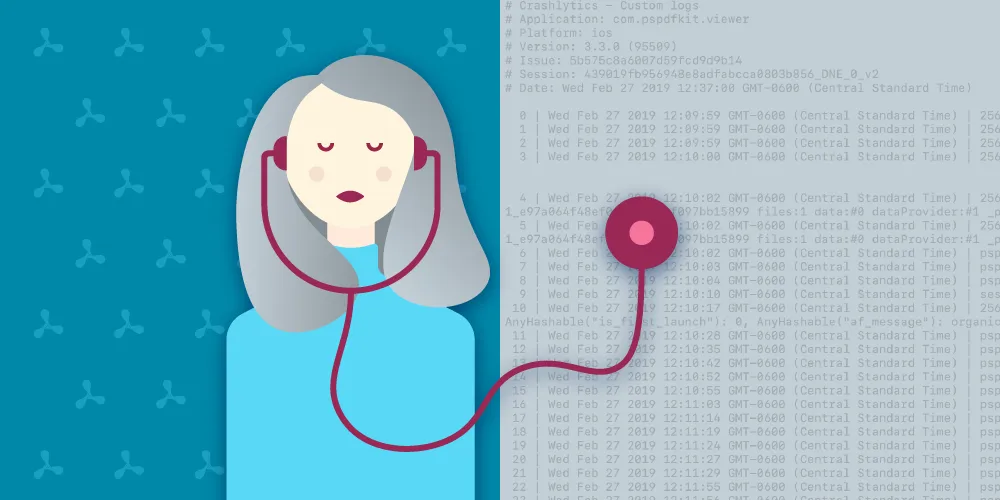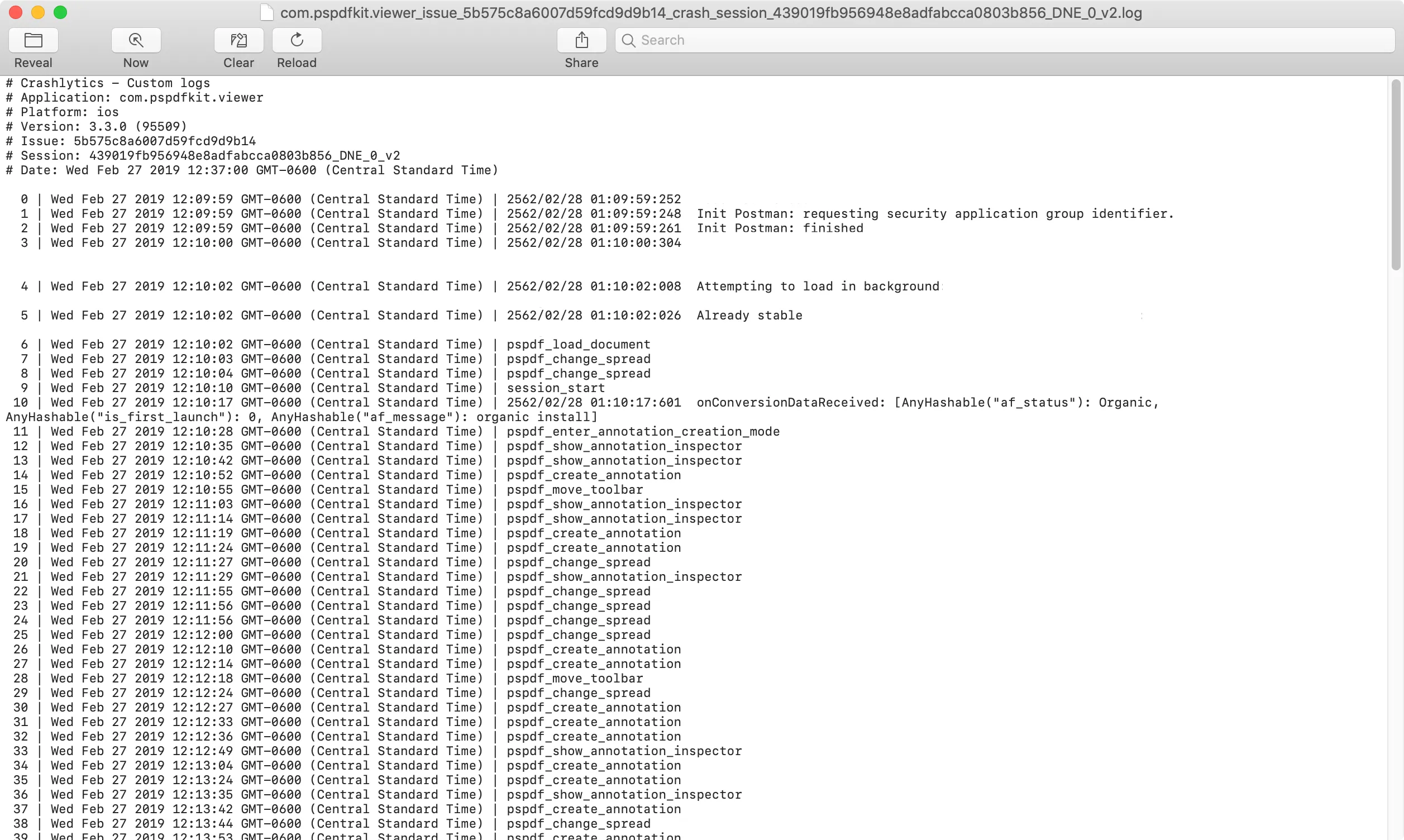Adding Logging to Crash Reports
Table of contents

A great way to address critical issues in production applications is to analyze the symbolicated crash log. However, understanding crash reports is often difficult without extra context detailing how and why a crash happened in the first place.
In this post, we’ll outline how we customized our crash reporting strategy so that the logs we get from our users contain enough information for us to be able to diagnose issues more effectively.
Using a File-Based Logger
PDF Viewer for iOS(opens in a new tab), our free, PSPDFKit-powered application for viewing and editing PDFs, uses Google’s Firebase(opens in a new tab) crash reporting service, Crashlytics(opens in a new tab).
Ideally, we’d love to fully switch to Apple’s os_log(opens in a new tab) API. However, it has one major downside: There’s still no way to access the rolling log to add to the reports that get sent back to us. Multiple radars have been submitted to Apple, requesting this feature be added (rdar://40853863(opens in a new tab), rdar://30444429(opens in a new tab)), but in the meantime, developers are forced to implement their own solutions if they wish to include logging in a crash’s backtrace.
Fortunately, Crashlytics includes the helper functions CLSLogv and CLSNSLogv(opens in a new tab) to automatically take over the work of a rolling log for us:
/// This class is used to log events to Crashlytics./// The log size of a session is limited to 64 KB. Older entries are deleted.class CrashlyticsLogger: DDAbstractLogger {
override init() { super.init() self.logFormatter = DDLogFileFormatterDefault() }
override func log(message: DDLogMessage) { guard let formatter = self.value(forKey: "_logFormatter") as? DDLogFormatter, let logText = formatter.format(message: message) else { return }
CLSLogv("%@", getVaList([logText])) }}For our specific use case, we’ve decided to integrate Crashlytics’ CLSLogv function as a custom logger that we use with CocoaLumberjack(opens in a new tab), a framework that offers many other useful features, such as adding macOS logging capabilities.
By simply customizing our log handler to include a call to CLSLogv, we get a rolling log that’s limited to 64KB for free.
Hooking into PSPDFKit’s Log Handler
PSPDFKit offers logging out of the box, and because these logs are printed to the console and nothing is sent to a remote location, we need to explicitly hook into the log firehose to retrieve the logs and be able to include them in our crash reports.
We also track critical events via Google Analytics for Firebase for conditions that “should never happen but are recoverable/aren’t critical enough to crash.”
We accomplish this by setting a custom log handler on the global PSPDFKit.sharedInstance, as follows:
PSPDFKit.SDK.shared.setLogHandler { [unowned self] level, tag, message, _, function, line in // Respect the configured log level. guard PSPDFKit.SDK.shared.logLevel >= level else { return }
let logMessage = self.formatMessage(forTag: tag, function: function, line: line, message: message)
let sendLogToAnalytics = { (eventName: PSPDFAnalyticsEventName) -> Void in let attributes = [ "function_name": function, "line_number": line, "message": message() ] as [String: Any] Analytics.shared.logEvent(eventName, attributes: attributes) FirebaseAnalyticsClient.recordErrorEvent(event: eventName.rawValue, attributes: attributes) }
switch level { case let value where value == .verbose: DDLogVerbose(logMessage) case let value where value == .debug: DDLogDebug(logMessage) case let value where value == .info: DDLogInfo(logMessage) case let value where value == .warning: DDLogWarn(logMessage) case let value where value == .error: DDLogError(logMessage) case let value where value == .critical: DDLogError(logMessage) sendLogToAnalytics(.criticalEvent) default: DDLogInfo(logMessage) }}Reminder: When logging data, keep user privacy in mind and exclude sensitive data, such as document file names and unlock passwords. Apple’s os_log considers all dynamic strings to be user data and redacts them by default.
Here’s a screenshot of the logs attached to one of our crash reports on Crashlytics. When we go over our crash reports, these logs prove to be invaluable tools in providing us with a better perspective of what the user was doing when the application crashed. Additionally, the level of detail makes our jobs easier.

Conclusion
With modern third-party crash reporting services such as Google’s Firebase Crashlytics, collecting log statements is both easy and extremely helpful in allowing us to better understand and debug the conditions leading to issues — something every app on the App Store can benefit from.







